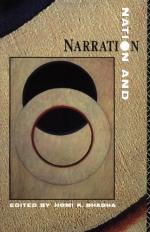|
This section contains 8,142 words (approx. 28 pages at 300 words per page) |

|
SOURCE: Attwood, Bain. Introduction to Power, Knowledge and Aborigines, edited by Bain Attwood and John Arnold, pp. i-xvi. Bundoora, Victoria: La Trobe University Press, 1992.
In the following excerpt, Attwood considers the theoretical issues surrounding white European interpretation of the Aborigine.
This [essay] is concerned with European Australians and our ways of knowing ‘the Aborigines’. In particular it considers both Aboriginalism1 as a mode of discourse which, like Edward Said's ‘Orientalism’,2 produces authoritative and essentialist ‘truths’ about indigenes, and which is characterised by a mutually supporting relationship between power and knowledge, as well as other forms of knowledge characterised by non-oppressive discursive practices, which I will call post-Aboriginalist. Aboriginalism exists in at least three interdependent forms: first, as ‘Aboriginal Studies’—the teaching, research or display of scholarly knowledge about indigenes by European scholars who claim that the indigenous peoples cannot represent themselves and must therefore be represented by experts...
|
This section contains 8,142 words (approx. 28 pages at 300 words per page) |

|


